By Maxmilian Wechsler
As pointed out by renowned scientist Carl Sagan, ‘You have to know the past to understand the present’.
If for no other reason, the events that shaped modern-day Thailand are worth revisiting to get an understanding of how the country has developed. Starting this month, The BigChilli will recap important news stories of the past 50 years, from 1967 to 2017, a period in which Thailand made the remarkable journey from Southeast Asian backwater to one of the world’s premier tourist destinations. Each issue will cover a five-year period and is sure to offer surprises for even the most knowledgeable Thai history buffs.
1967 was the year Thai Rung Engineering Company was founded by Vichien Phaoenchoke. It was the first and only Thai automobile manufacturing company. Other major news stories of 1967 include:
As pointed out by renowned scientist Carl Sagan, ‘You have to know the past to understand the present’.
If for no other reason, the events that shaped modern-day Thailand are worth revisiting to get an understanding of how the country has developed. Starting this month, The BigChilli will recap important news stories of the past 50 years, from 1967 to 2017, a period in which Thailand made the remarkable journey from Southeast Asian backwater to one of the world’s premier tourist destinations. Each issue will cover a five-year period and is sure to offer surprises for even the most knowledgeable Thai history buffs.
1967 was the year Thai Rung Engineering Company was founded by Vichien Phaoenchoke. It was the first and only Thai automobile manufacturing company. Other major news stories of 1967 include:
|
January
•For the first time Thai troops were deployed to South Vietnam. About 1,000 Thai soldiers joined in military operations alongside South Vietnamese forces backed by the US. •Nobel Prize-winning American author John Steinbeck arrived in Bangkok following a four-month ‘fact-finding mission’ to Vietnam. Steinbeck predicted that the US would win the war and condemned anti-war protesters. March •US officials admitted for the first time that the US planes were using Thai bases to bomb North Vietnam. Around 35,000 US personnel were stationed in Thailand at the time. •American Jim Thompson failed to return from a trip to Malaysia. It was learned that he disappeared in the jungle around the Cameron Highlands after taking a walk from a cottage where he was staying. Thompson was a former intelligence officer who had been attached to the US Office of Strategic Services (predecessor of the CIA). He settled in Thailand in 1946 and was responsible for making Thai silk famous around the world. |
•Chulalongkorn University, Thailand’s first university named after King Chulalongkorn (Rama V), celebrated its 50th anniversary. Their Majesties King Bhumibol Adulyadej and Queen Sirikit opened the festivities which took place on the campus over a three-day period.
June
•A fascinated crowd watched the first Thai colour TV show on eight 24-inch colour sets placed outside the Royal Hotel in Bangkok. TV sets were sold in the shops but cost at least twice as much as black and white sets.
September
•Thai security forces arrested 37 members of the Communist Party of Thailand, both males and females, including some alleged leaders. Most of the arrests were made in Bangkok. Under the Article 17 of the new interim constitution those arrested faced a possible death sentence.
October
•An emotional ceremony was held for the first two Thai soldiers killed in Vietnam. The soldiers were reportedly killed by a booby trap while on patrol near Saigon. Their bodies were flown to Don Muang airport.
•Establishment of Prince of Songkhla University, the first university in southern Thailand. The King christened the university in honour of his father, His Royal Highness Prince Mahidol Adulyadej, Prince of Songkhla. An initial plan to construct the university in Pattani province was scrapped and Hat Yai in Songkhla province was chosen instead.
November
•Establishment of the Association of Thai Industries (FTA), a private sector organization designed to assist and promote Thai industries.
•The Dalai Lama arrived in Bangkok at the invitation of the Buddhist Association of Thailand. While in Thailand he met with local religious leaders and government officials including Prince Dhani Nivat, president of the Privy Council, and Prime Minister Field Marshal Thanom Kittikachorn.
•According to the Public Health Ministry, the incidence of venereal diseases had increased in Thailand by 50 percent over the previous five years. The ministry said most infections were contracted through prostitutes and asked the United Nations for assistance. The UN Children’s Fund and the World Health Organization promised to help.
•Jacqueline Kennedy, the widow of assassinated US President John Fitzgerald Kennedy, visited Thailand. She met with the King and Queen during her short stay.
•The first Thailand National Games, also known as Phra Nakhon 1967, were held in Bangkok. The multi-sport venue hosted 103 events in 15 disciplines. A total of 716 athletes from all regions of the country participated in the games.
June
•A fascinated crowd watched the first Thai colour TV show on eight 24-inch colour sets placed outside the Royal Hotel in Bangkok. TV sets were sold in the shops but cost at least twice as much as black and white sets.
September
•Thai security forces arrested 37 members of the Communist Party of Thailand, both males and females, including some alleged leaders. Most of the arrests were made in Bangkok. Under the Article 17 of the new interim constitution those arrested faced a possible death sentence.
October
•An emotional ceremony was held for the first two Thai soldiers killed in Vietnam. The soldiers were reportedly killed by a booby trap while on patrol near Saigon. Their bodies were flown to Don Muang airport.
•Establishment of Prince of Songkhla University, the first university in southern Thailand. The King christened the university in honour of his father, His Royal Highness Prince Mahidol Adulyadej, Prince of Songkhla. An initial plan to construct the university in Pattani province was scrapped and Hat Yai in Songkhla province was chosen instead.
November
•Establishment of the Association of Thai Industries (FTA), a private sector organization designed to assist and promote Thai industries.
•The Dalai Lama arrived in Bangkok at the invitation of the Buddhist Association of Thailand. While in Thailand he met with local religious leaders and government officials including Prince Dhani Nivat, president of the Privy Council, and Prime Minister Field Marshal Thanom Kittikachorn.
•According to the Public Health Ministry, the incidence of venereal diseases had increased in Thailand by 50 percent over the previous five years. The ministry said most infections were contracted through prostitutes and asked the United Nations for assistance. The UN Children’s Fund and the World Health Organization promised to help.
•Jacqueline Kennedy, the widow of assassinated US President John Fitzgerald Kennedy, visited Thailand. She met with the King and Queen during her short stay.
•The first Thailand National Games, also known as Phra Nakhon 1967, were held in Bangkok. The multi-sport venue hosted 103 events in 15 disciplines. A total of 716 athletes from all regions of the country participated in the games.
|
1968 was the year the separatist Islamic group called Pattani United Liberation Organization was formed, with the aim of using military and political means to achieve independence for Muslim-majority areas of southern Thailand.
January •PM Thanom announced that US warplanes taking off from Thai air force bases were bombing the Ho Chi Minh Trail in Laos. It was the first official admission that US bombing raids were launched from Thai soil. The PM justified the action by saying it was “for the defence of our country”. •The Shan of Iran and Empress Farah made a week-long state visit to Thailand. They were greeted at Bangkok airport by the King and the Queen, who had visited Iran in February 1967. •Philippines President Ferdinand Marcos and his wife Imelda made a five-day state visit to Thailand during which they met with the King and the Queen. February •PM Thanom inaugurated Thailand’s first steel manufacturing plant, GS Steel, in a ceremony in Samut Prakan province. The plant was a joint venture between GS and Japan’s Mitsubishi Shoki Kaisha and Kawaishi-Gisho companies. The plant complex consisted of 14 buildings. March •Around 1,000 taxi drivers formed the Taxi Drivers Cooperative, making it the first labour union in Thailand. The stated aim of the cooperative was to improve the working conditions of taxi drivers and provide a better experience for passengers. |
|
•Tanayong Public Company Limited was founded. Now called BTS Group Holding, the company is the majority shareholder of Bangkok Mass Transit System PCL, which operates both the BTS Skytrain and Bangkok BRT.
May •The country’s first satellite communications earth station was opened at Tung Sukhla in Si Racha district of Chonburi province. The station was linked to an IntelSat II satellite in orbit 22,300 miles above the Pacific Ocean, facilitating communication by voice, television and data. It was the first such station in Southeast Asia. •Ethiopia’s Emperor Haile Selassie made a state visit to Thailand lasting three days, during which he met with the King. His Majesty said that the Emperor’s visit “marks the first time that a reigning monarch from Africa has made a state visit to Thailand” and praised the Emperor’s “wise and benevolent leadership”. July •For the first time in Thai medical history doctors at Siriraj Hospital in Bangkok succeeded in separating conjoined twins. The twins were joined at the liver and the complicated procedure to separate them was performed by a team of five Thai doctors led by the chief of the hospital’s paediatrics department, Dr Snoh Indrasukhsri. August •Popular 38-year-old singer Surapol Sombatcharoen, hailed as ‘Thailand’s Elvis’, was shot dead by an assassin after getting into his car at a car park following a performance at Saengchand Theatre in Nakhon Pathom province. Thousands of mourners came to his funeral at Wat Paknam in Thonburi. October •The last nine trams were removed from Bangkok streets after it was determined they were too expensive to maintain and they blocked vehicular traffic. The trams had been introduced to Bangkok about 70 years earlier. |
November
•The first King’s Cup, the country’s first international football tournament organized by the Football Association of Thailand, kicked off at National Stadium and carried on to December. The Cup was won by Indonesia, who beat Burma 1-0 in the final. Thailand finished third. Three bottle bombs exploded during a semifinal between Thailand and Burma, injuring seven spectators at the stadium. Authorities suspected that the incident was the work of communist insurgents.
December
•The King opened the National Cancer Institute on Rama IV Road near Ramathibodi Hospital. The institute was partially financed by Japan. The King proclaimed December 10 as Anti-Cancer Day.
•The first King’s Cup, the country’s first international football tournament organized by the Football Association of Thailand, kicked off at National Stadium and carried on to December. The Cup was won by Indonesia, who beat Burma 1-0 in the final. Thailand finished third. Three bottle bombs exploded during a semifinal between Thailand and Burma, injuring seven spectators at the stadium. Authorities suspected that the incident was the work of communist insurgents.
December
•The King opened the National Cancer Institute on Rama IV Road near Ramathibodi Hospital. The institute was partially financed by Japan. The King proclaimed December 10 as Anti-Cancer Day.
1969 saw the transition of Assumption University, established in 1938, to an autonomous educational institution, as well as the founding of the Roman Catholic Diocese of Surat Thani province. The area was evangelized by the Salesians of Don Bosco in the 1930s. 1969 was also the year Sahakol Air was formed as an air-taxi service. It was the first privately owned domestic airline in Thailand and under contract to the Overseas International Construction Company, US Operation Mission and other organizations involved in oil and natural gas exploration in the Gulf of Thailand. The airline was rebranded as Bangkok Airways in 1989.
February
•An IBM 1800 computer was delivered to Chulalongkorn University in Bangkok, a gift from the US Pentagon. The computer was installed inside the Engineering Faculty. The computer was intended for scientific and industrial work and also available to American and Thai military personnel.
•A professional bout between two Thai boxers at Ratchadamnoen Stadium was refereed by former world heavyweight boxing champion Rocco Francis Marchegiano, better known as Rocky Marciano. About 12,000 people were in attendance. Marciano won all 49 fights of his career, 43 by KO.
•The first national election in 11 years was held. More than 1,500 candidates from a dozen parties and independents vied for 219 seats in the House of Representatives. PM Thanom’s United Thai People Party won 75 seats and 72 went to independents. After the elections 30 of the 72 independents joined the UTPP.
February
•An IBM 1800 computer was delivered to Chulalongkorn University in Bangkok, a gift from the US Pentagon. The computer was installed inside the Engineering Faculty. The computer was intended for scientific and industrial work and also available to American and Thai military personnel.
•A professional bout between two Thai boxers at Ratchadamnoen Stadium was refereed by former world heavyweight boxing champion Rocco Francis Marchegiano, better known as Rocky Marciano. About 12,000 people were in attendance. Marciano won all 49 fights of his career, 43 by KO.
•The first national election in 11 years was held. More than 1,500 candidates from a dozen parties and independents vied for 219 seats in the House of Representatives. PM Thanom’s United Thai People Party won 75 seats and 72 went to independents. After the elections 30 of the 72 independents joined the UTPP.
|
April
•A US Air Force Lockheed EC-121 spy plane crashed on takeoff near Korat killing all 18 crew-members. The crash was in an unpopulated area about five kilometers northwest of Korat’s Royal Thai Air Force Base. May •Three electricity generating companies, Yanhee Electricity Authority, Lignite Electricity and Northeast Electricity Authority joined to form the Electricity Generating Authority of Thailand (EGAT). The merger was designed to reduce costs. EGAT became the largest power producer in Thailand. •Fifty three Thai fishermen were freed by Cambodian Prince Norodom Sihanouk after spending five to eight years in Cambodian custody. The fishermen had been captured in Cambodian waters, charged with illegal fishing and jailed. The Burmese Ambassador representing Thai interests in Cambodia was partly responsible for the release. June •The King authorized the purchase of new printing presses to produce high quality banknotes. The Bank of Thailand’s Banknote Printing Division said that using high quality paper and modern printing techniques machines would deter counterfeiters. The first running of the new presses produced notes of five and 10 baht denomination. July •US President Richard Nixon and his wife Pat made a visit to Thailand and were received by the King and the Queen. They also met with PM Thanom and other officials, including the Foreign Minister Thanat Khoman. US Secretary of State Henry Kissinger joined the president in various meetings. August •PM Thanom told the National Cultural Council to ban mini-skirts. |
|
September
•English language bookseller Asia Books was established. •The US began the withdrawal of 48,000 troops and giant B52 bombers from Thailand amid growing anti-war protests and increasing criticism from Congress on the management of the war. State Department Secretary William Rogers said Congress was worried that the US could be dragged into another land war in Thailand. An agreement was reached on September 20 between the US and Thailand specifying that the first 6,000 US troops would leave Thailand by July 1, 1970. November. |
•Thousands of Thai Marines were sent to help police in the struggle against communists and Muslim separatists in the jungles of South Thailand. The strategy of the insurgents was to destroy the economy by attacking infrastructure and spreading fear among workers at rubber plantations. On November 12 in Songkhla province insurgents killed seven policemen and critically injured three others.
December
•Bangkok Bank was the first financial institution in Thailand to computerize its operations. Bank officials said customers would be able to deposit and withdraw money from the 38 branches in Bangkok and Thonburi more conveniently.
December
•Bangkok Bank was the first financial institution in Thailand to computerize its operations. Bank officials said customers would be able to deposit and withdraw money from the 38 branches in Bangkok and Thonburi more conveniently.
1970 brought new rules for foreign workers in the country in an effort to reduce the number of immigrants who were taking jobs from Thais. It was announced that regulations requiring foreigners to have work permits would soon be introduced.
•1970 saw the founding of the following enterprises and institutions which are still with us: Provincial Electricity Football Club,now known as Buriram United FC; Wat Phra Dhammakaya Buddhist temple in Pathum Thani province, founded by the maechi (nun) Chandra Khonnokyoong and Luang Por Dhammajayo; Thai motion picture production and distribution company Sahamongkol Film International, or Mongkol Film; and Suriya College, renamed Sripatum University in 1987.
•The Queen’s Cup annual football competition took place for the first time in 1970, but was discontinued in 2010.
February
•The Dusit Thani Hotel opened its doors on the corner of Silom and Rama IV roads. Founded by Chanut Piyaoui, it was the highest building in Bangkok at the time.
March
•Indonesian President Hajji Suharto and his wife made a two-day official visit to Thailand. The president was welcomed at the airport by the King, who said that both nations faced ‘critical dangers’. Both Thailand and Indonesia supported America’s program of communist suppression throughout the region.
•Color Television Channel 3 (TV3) began broadcasting at 10am on March 26. It was the first Thai commercial television station. TV3 was officially launched during a ceremony attended by PM Thanom.
May
•Cambodia asked Thailand for a military aid, one year after the Americans began bombing communist Vietnamese targets in Cambodia. Links between Thailand and Cambodia improved with the opening of the Aranyaprathet border crossing and re-establishment of diplomatic relations.
July
•Cambodian Prime Minister Lon Nol was the first Cambodian premier to make an official visit to Thailand in 20 years. Lon Nol led a successful bloodless military coup d’état in May which overthrew the regime of Prince Norodom Sihanouk. He was later overthrown by the Khmer Rouge in 1975.
•A tax was introduced on more than 200 imported and locally made items. Dubbed the Midnight Tax Decree, the new regulations increased the import duty on cars from an already high 60% to 80%, while sales taxes went up to 30 percent. The duty on cosmetics increased almost 100%. The government defended the increases as necessary to increase the military budget to fund communist suppression efforts and fend off other national security threats.
September
•More than 4,000 students from Chulalongkorn University broke through the main gate of the Parliament building and demanded the suspension of three professors allegedly involved in corruption in the lease of campus land to private businesses.
October
•Superstar actor Mitr Chaibancha (born Pichet Pumhem) fell 90 meters to his death from a helicopter while filming the final scene of his new movie Insee Thong (Golden Eagle) at Dongtan Beach, Jomtien, Pattaya. The 36-year-old actor appeared in 266 films between 1956 and 1970 was injured several times during his career. Around 100,000 fans came to a memorial service for Mitr held the day after his accident at Bangkok’s Wat Sunthorn Thammathan.
November
•A French monorail company approached the Bangkok municipality with a proposal to do a feasibility study into a mass rail line for Bangkok. The city accepted the proposal.
December
•A five-hour fire destroyed half of the commercial centre of Saraburi, laying waste to homes and businesses and leaving over 3,000 people homeless. Hundreds of shop houses, three banks, two insurance companies, a theatre, a market and two schools were destroyed. The King sent relief supplies to families affected by the fire.
•1970 saw the founding of the following enterprises and institutions which are still with us: Provincial Electricity Football Club,now known as Buriram United FC; Wat Phra Dhammakaya Buddhist temple in Pathum Thani province, founded by the maechi (nun) Chandra Khonnokyoong and Luang Por Dhammajayo; Thai motion picture production and distribution company Sahamongkol Film International, or Mongkol Film; and Suriya College, renamed Sripatum University in 1987.
•The Queen’s Cup annual football competition took place for the first time in 1970, but was discontinued in 2010.
February
•The Dusit Thani Hotel opened its doors on the corner of Silom and Rama IV roads. Founded by Chanut Piyaoui, it was the highest building in Bangkok at the time.
March
•Indonesian President Hajji Suharto and his wife made a two-day official visit to Thailand. The president was welcomed at the airport by the King, who said that both nations faced ‘critical dangers’. Both Thailand and Indonesia supported America’s program of communist suppression throughout the region.
•Color Television Channel 3 (TV3) began broadcasting at 10am on March 26. It was the first Thai commercial television station. TV3 was officially launched during a ceremony attended by PM Thanom.
May
•Cambodia asked Thailand for a military aid, one year after the Americans began bombing communist Vietnamese targets in Cambodia. Links between Thailand and Cambodia improved with the opening of the Aranyaprathet border crossing and re-establishment of diplomatic relations.
July
•Cambodian Prime Minister Lon Nol was the first Cambodian premier to make an official visit to Thailand in 20 years. Lon Nol led a successful bloodless military coup d’état in May which overthrew the regime of Prince Norodom Sihanouk. He was later overthrown by the Khmer Rouge in 1975.
•A tax was introduced on more than 200 imported and locally made items. Dubbed the Midnight Tax Decree, the new regulations increased the import duty on cars from an already high 60% to 80%, while sales taxes went up to 30 percent. The duty on cosmetics increased almost 100%. The government defended the increases as necessary to increase the military budget to fund communist suppression efforts and fend off other national security threats.
September
•More than 4,000 students from Chulalongkorn University broke through the main gate of the Parliament building and demanded the suspension of three professors allegedly involved in corruption in the lease of campus land to private businesses.
October
•Superstar actor Mitr Chaibancha (born Pichet Pumhem) fell 90 meters to his death from a helicopter while filming the final scene of his new movie Insee Thong (Golden Eagle) at Dongtan Beach, Jomtien, Pattaya. The 36-year-old actor appeared in 266 films between 1956 and 1970 was injured several times during his career. Around 100,000 fans came to a memorial service for Mitr held the day after his accident at Bangkok’s Wat Sunthorn Thammathan.
November
•A French monorail company approached the Bangkok municipality with a proposal to do a feasibility study into a mass rail line for Bangkok. The city accepted the proposal.
December
•A five-hour fire destroyed half of the commercial centre of Saraburi, laying waste to homes and businesses and leaving over 3,000 people homeless. Hundreds of shop houses, three banks, two insurance companies, a theatre, a market and two schools were destroyed. The King sent relief supplies to families affected by the fire.
|
1971 saw the launch of the Chao Phraya Express transport service operating on the Chao Phraya River. The service still provides convenient transportation between Bangkok and Nonthaburi for locals and tourists Ramkhamhaeng University, a public and open university named after King Ramkhamhaeng the Great of Sukhothai, was established. The King is credited with creating the Thai alphabet. Sirindhorn Dam, named after Her Royal Highness Princess Maha Chakri Sirindhorn, was commissioned in 1971. The dam is located in Sirindhorn district of Ubon Ratchathani province and was built to serve as a hydropower facility and to supply water for irrigation.
|
|
January
•Mitr Chaibancha was cremated at Wat Thepsirin in Bangkok. Tens of thousands of fans attended the cremation ceremony. March •Martial law was suspended in 34 provinces including Bangkok, and the government said that Thonburi and Chiang Mai were no longer considered ‘communist infested’ areas. However, emergency powers remained in force in 37 Thai provinces, including the whole Northeast. April •A blaze at the Imperial Hotel in Bangkok claimed 24 lives, including six children. Many guests jumped from windows of the 107-room hotel to escape the blaze. May •FM Thanat Khoman referred to China as “the People’s Republic of China” during a press conference in a real sign of warming between the two countries. It was the first time any cabinet official used the official name of China. July •Nation Multimedia Group was formed and English-language newspaper The Nation was launched by former Bangkok Post journalist Suthichai Yoon on July 1. The front-page headline was: “The How and Why of The Nation.” The first issue reportedly sold 3,000 copies. |
•The government considered various proposals on how to support the car manufacturing industry. Ministries worked together to come up with recommendations to promote car assembly and the manufacture of component parts. One proposal was to widen the import tax differential between completely built-up cars – to be taxed at higher rate – and cars which were assembled in Thailand.
August
•Scientists warned that unless something was done to prevent further subsidence, Bangkok could be below sea level in 20 years’ time. Two professors in geotechnical engineering from the Asian Institute of Technology claimed said there was evidence that many areas in Bangkok were subsiding because too much underground water had been pumped from beneath the city to meet the rapid increase in water demand.
September
•Transvestites (katoey) from Bangkok and Thonburi formed an association to protect their interests and to end what they claimed was prejudice against them. Among other aims, the group’s leaders said they wanted a law to allow them to marry. The group estimated there were around 10,000 katoey living in Bangkok and Thonburi.
October
•Mobs of football fans, mostly youths, rioted at the National Stadium after heavy rain led to cancellation of the Queen’s Cup semifinal match between Vee Foh and Rajathevi. The fans tore down goalposts, smashed seats and lit bonfires on the pitch. The match was attended by about 20,000 fans. An unknown number participated in the riot after players failed to show after half-time.
•The government approved a proposal to transform and develop the island of Koh Samui into a major holiday destination in an effort to boost the ailing tourist industry. Among other attempts to stimulate tourism was an extension of the length of time tourists could stay without a visa.
November
•PM Thanom staged a coup on November 17 against his own government, citing the need to suppress communist infiltration. In a shocking announcement made on Bangkok Radio at 7pm, PM Thanom declared martial law, abrogating the constitution, dissolving Parliament and disbanding the cabinet. All authority was placed in the hands of security forces chiefs. Thanom also announced the establishment of a nine-member Executive Council to direct affairs of state for five years.
December
•The Supreme Patriarch Somdej Phra Ariyawongsakhatayan passed away after injuries suffered in a car accident. The accident happened in Bang Phli district of Samut Prakan province as the supreme patriarch was on his way to deliver a sermon. His limousine crashed head-on with a pickup truck. The country went into a 15-day mourning period. A tearful Thanom paid homage to the patriarch at Police Hospital in Bangkok, where the body was taken.
*Sources for this story include archives of UPI, AFP, AP, the Bangkok Post, The Nation and Wikipedia.
•Scientists warned that unless something was done to prevent further subsidence, Bangkok could be below sea level in 20 years’ time. Two professors in geotechnical engineering from the Asian Institute of Technology claimed said there was evidence that many areas in Bangkok were subsiding because too much underground water had been pumped from beneath the city to meet the rapid increase in water demand.
September
•Transvestites (katoey) from Bangkok and Thonburi formed an association to protect their interests and to end what they claimed was prejudice against them. Among other aims, the group’s leaders said they wanted a law to allow them to marry. The group estimated there were around 10,000 katoey living in Bangkok and Thonburi.
October
•Mobs of football fans, mostly youths, rioted at the National Stadium after heavy rain led to cancellation of the Queen’s Cup semifinal match between Vee Foh and Rajathevi. The fans tore down goalposts, smashed seats and lit bonfires on the pitch. The match was attended by about 20,000 fans. An unknown number participated in the riot after players failed to show after half-time.
•The government approved a proposal to transform and develop the island of Koh Samui into a major holiday destination in an effort to boost the ailing tourist industry. Among other attempts to stimulate tourism was an extension of the length of time tourists could stay without a visa.
November
•PM Thanom staged a coup on November 17 against his own government, citing the need to suppress communist infiltration. In a shocking announcement made on Bangkok Radio at 7pm, PM Thanom declared martial law, abrogating the constitution, dissolving Parliament and disbanding the cabinet. All authority was placed in the hands of security forces chiefs. Thanom also announced the establishment of a nine-member Executive Council to direct affairs of state for five years.
December
•The Supreme Patriarch Somdej Phra Ariyawongsakhatayan passed away after injuries suffered in a car accident. The accident happened in Bang Phli district of Samut Prakan province as the supreme patriarch was on his way to deliver a sermon. His limousine crashed head-on with a pickup truck. The country went into a 15-day mourning period. A tearful Thanom paid homage to the patriarch at Police Hospital in Bangkok, where the body was taken.
*Sources for this story include archives of UPI, AFP, AP, the Bangkok Post, The Nation and Wikipedia.

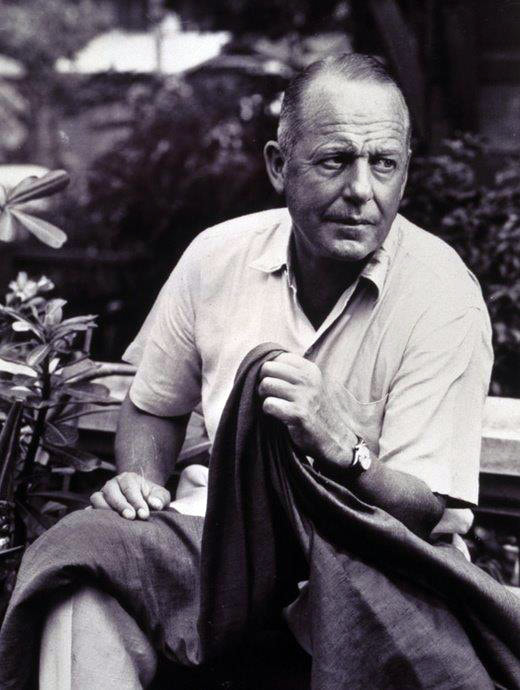
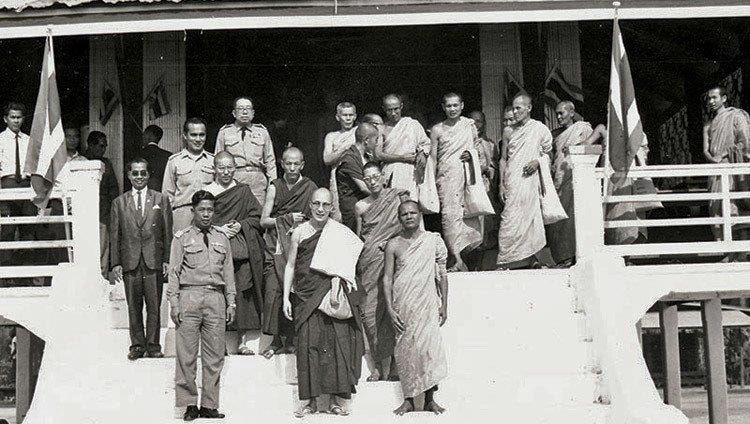
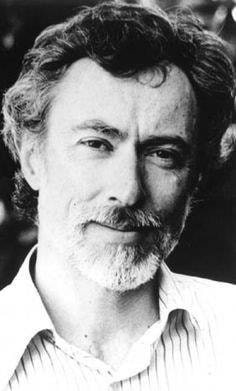
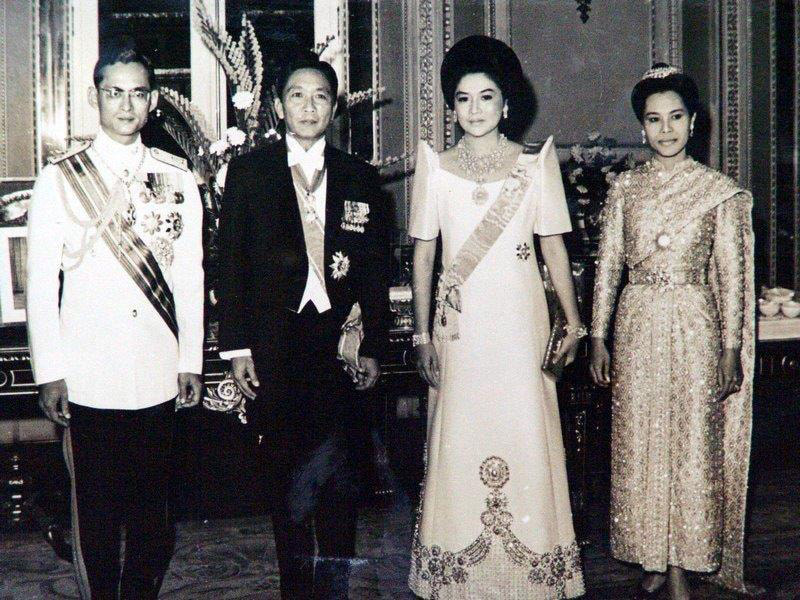
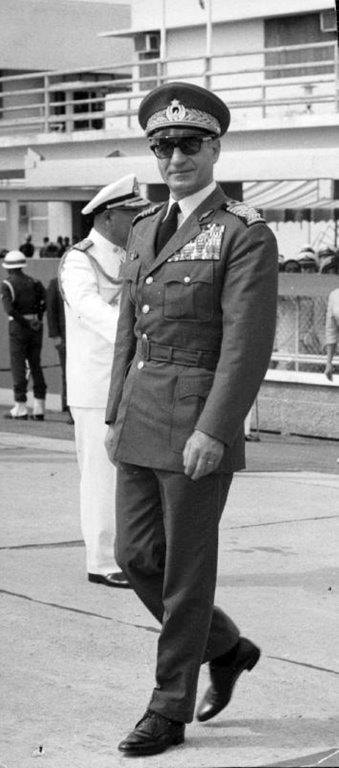
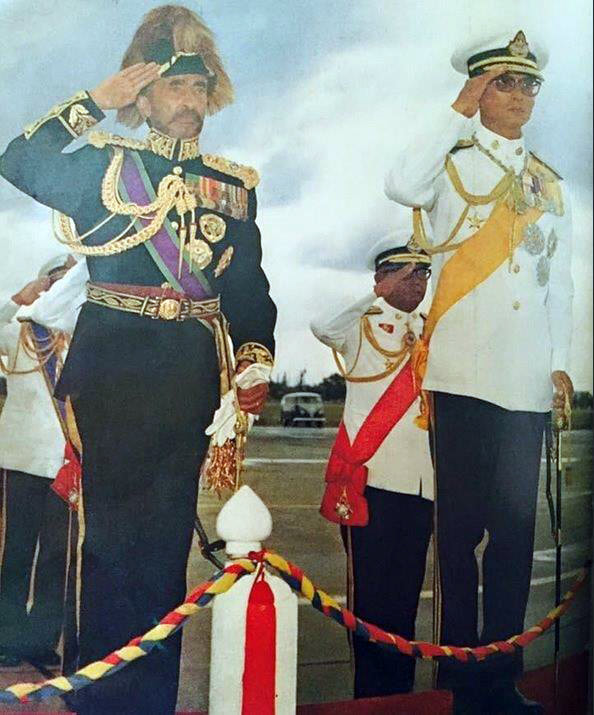
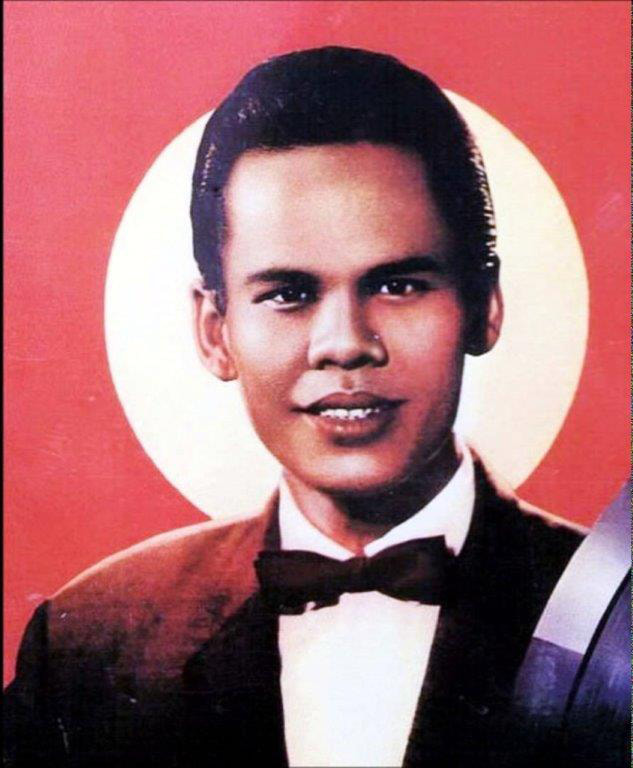
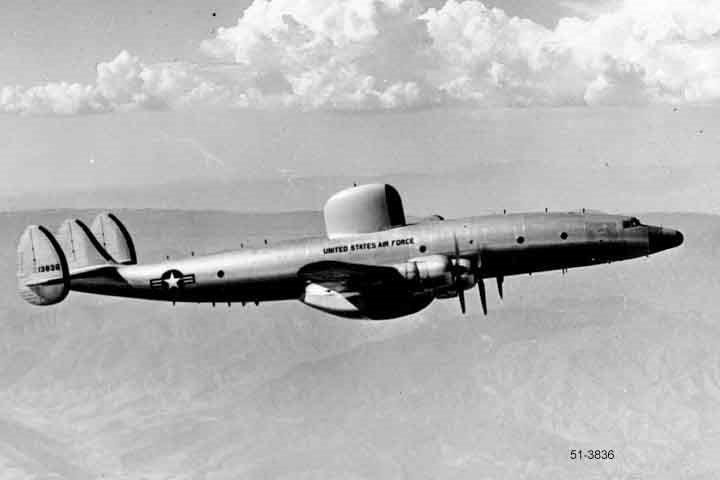
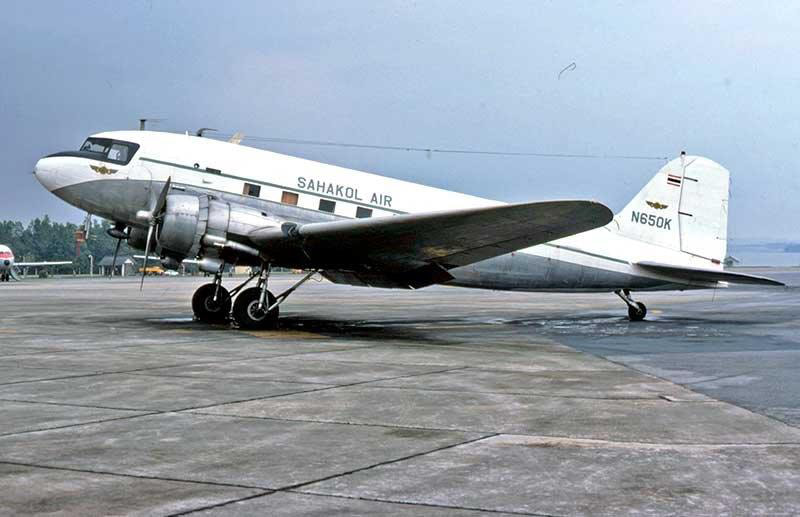
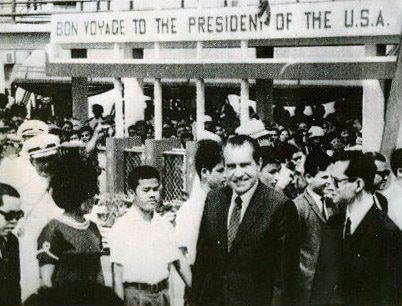
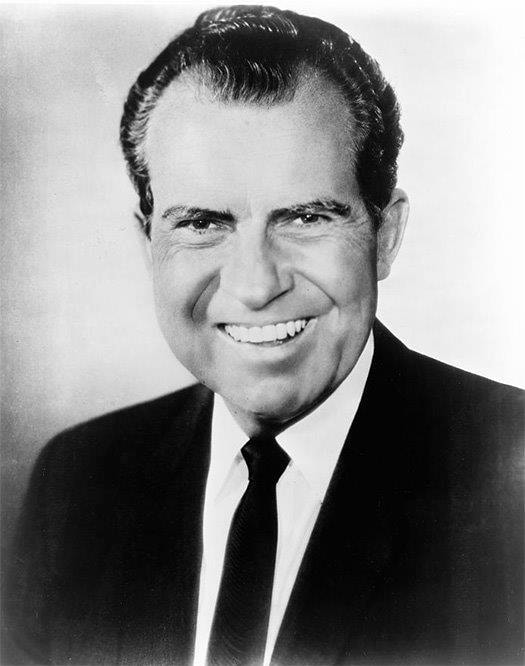
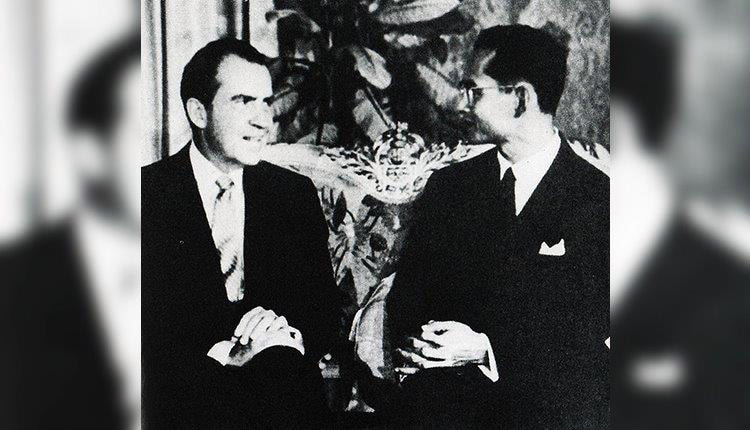
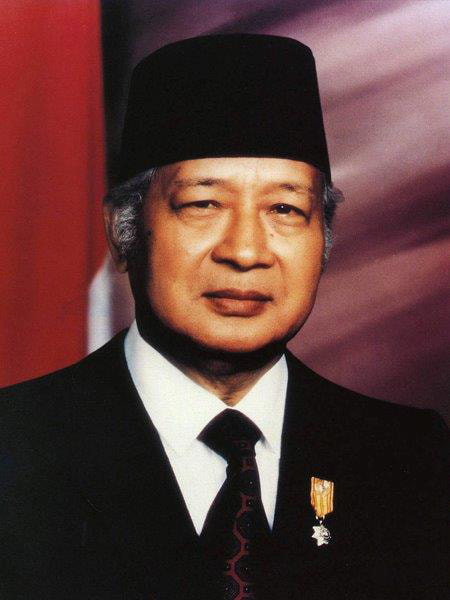
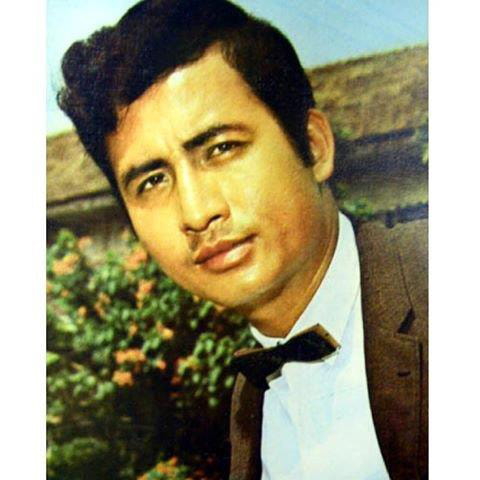
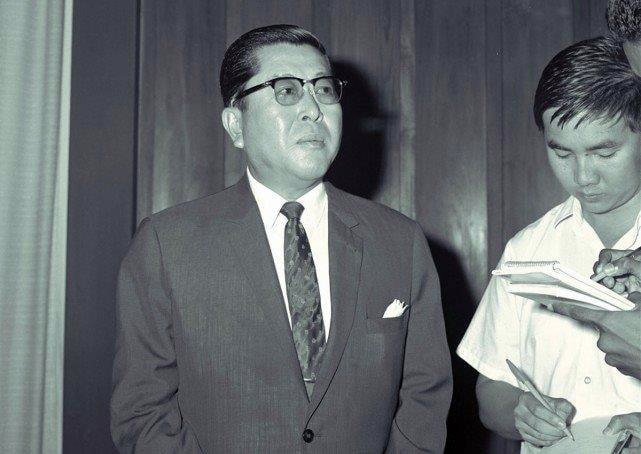
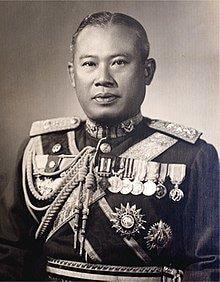
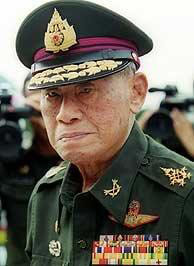
 RSS Feed
RSS Feed
















